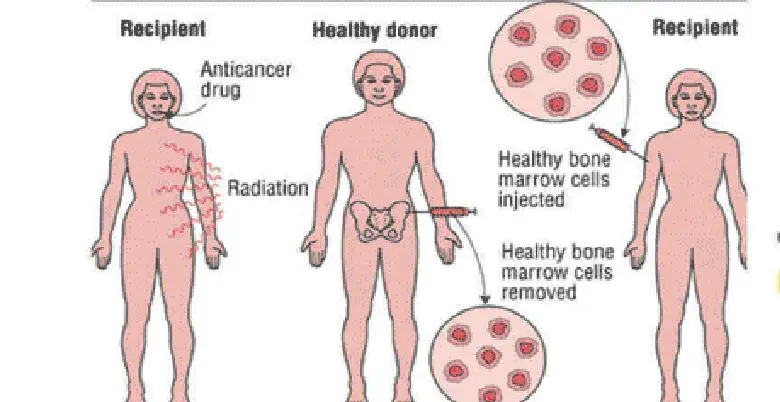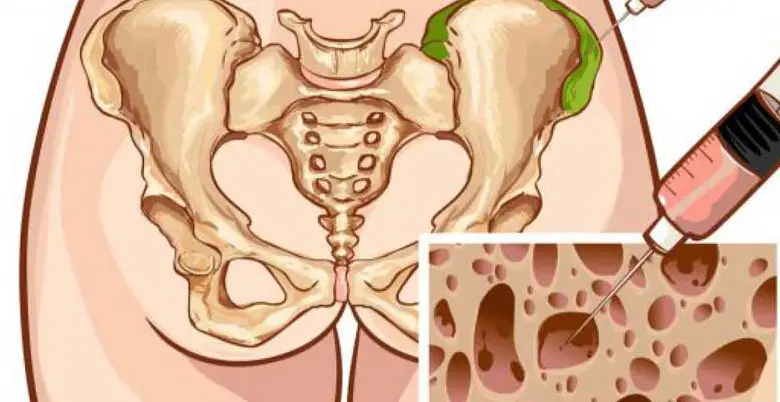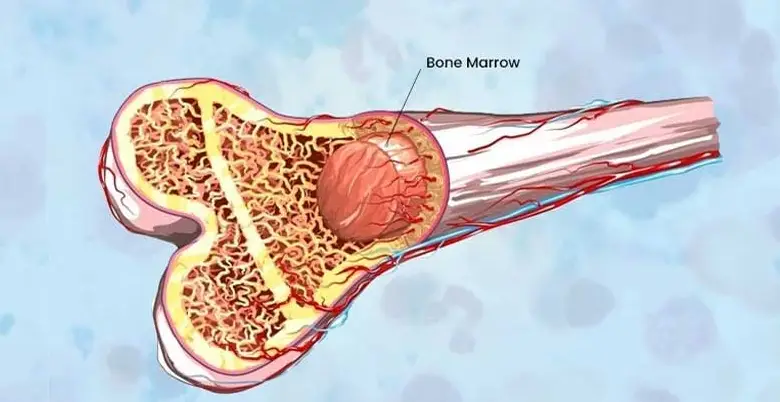Bone marrow is a soft and spongy tissue found in the bones. It contains stem cells that produce different types of blood cells. A medical technique called a bone marrow transplant replaces diseased or destroyed bone marrow with healthy stem cells. These stem cells are usually obtained from a donor or from the patient’s own body.
Why Bone Marrow Transplant?
It is a life-saving procedure that is used to treat several types of blood-related diseases. Bone marrow is a spongy tissue found in the bones that produce stem cells, which are responsible for making red and white blood cells, platelets, and other essential components of the blood.

Today, we will explore the bone marrow transplant procedure, the diseases it can treat, and the symptoms, tests, risk factors, and treatment procedures involved along with the best doctors & hospitals specialized in bone marrow transplants. So, let’s dive in.
Key Notes:
Bone marrow transplantation is a life-saving procedure that can treat several types of blood-related diseases. The process involves several steps, including preparation, harvesting,
conditioning, transplantation, and recovery. Patients with bone marrow-related diseases may experience fatigue, weakness, shortness of breath, and frequent infections.
Tests, such as blood tests, bone marrow biopsies, and imaging tests, may be done to diagnose these diseases. India has emerged as a leading destination for bone marrow transplantation, with several world-class hospitals offering state-of-the-art facilities at an affordable cost.
If you or a loved one has been diagnosed with a bone marrow-related disease, it is important to consult with a qualified healthcare professional to determine if bone marrow transplantation is a viable treatment option.
You may also like to read about rhinoplasty surgery cost in india as well here.
About Bone Marrow Transplantation
Bone marrow transplantation is done to treat several types of blood-related diseases. Some of the common diseases that can be treated with bone marrow transplantation are:
Leukemia
It is a type of blood cancer that affects white blood cells.
Lymphoma
It is a type of cancer that affects the lymphatic system.
Aplastic anemia
It is a rare condition in which the bone marrow fails to produce enough red and white blood cells.
Sickle cell anemia
It is a genetic condition that affects red blood cells.
Thalassemia
It is a genetic disorder that affects the production of hemoglobin, the protein in red blood cells that carries oxygen.
Multiple myeloma
It is a type of cancer that affects the plasma cells in the bone marrow.
Also read about lip reduction surgery cost and treatment procedure here.
Types of Bone Marrow Transplantation
The patient’s own bone marrow is used in this type of transplantation.
The stem cells are harvested from the patient’s bone marrow and stored until the high-dose chemotherapy and/or radiation therapy is completed.  After the conditioning therapy, the healthy stem cells are infused back into the patient’s bloodstream.
After the conditioning therapy, the healthy stem cells are infused back into the patient’s bloodstream.
Allogeneic transplantation
In this type of transplantation, the stem cells are obtained from a donor.
The donor may be a close family member, an unrelated donor, or a cord blood donor.
Symptoms
The symptoms of bone marrow-related diseases vary depending on the type of disease. Some common symptoms include:
- Fatigue and weakness
- Shortness of breath
- Paleness
- Frequent infections
- Fever
- Bruising and bleeding
- Swollen lymph nodes
- Bone pain
Do read about best tablet for headaches in india for your references.
Tests for Bone Marrow Transplantation
Several tests are used to diagnose bone marrow-related diseases. These tests may include:
Blood tests
Blood tests are used to measure the levels of different blood cells, such as red blood cells, white blood cells, and platelets.
Bone marrow biopsy
A small sample of bone marrow is taken from the hip bone and examined under a microscope to check for any abnormalities.
Imaging test
Imaging tests, such as X-rays, CT scans, and MRI scans, are used to detect any abnormalities in the bones or other organs.
Genetic testing
Genetic testing may be done to diagnose genetic blood disorders, such as sickle cell anemia and thalassemia.
Examination
Once a diagnosis has been made, the patient will undergo several tests to determine if he or she is a good candidate for bone marrow transplantation. These tests may include:
Blood tests
Blood tests are done to check the patient’s blood type and to see if there are any antibodies that could cause a reaction during the transplantation.
Heart and lung function tests
These tests are done to assess the patient’s overall health and to ensure that he or she can tolerate the conditioning therapy.
Imaging tests
Imaging tests, such as X-rays and CT scans, may be done to check the patient’s organ function.
Psychological evaluation
A psychological evaluation may be done to assess the patient’s emotional and mental health.
Treatment Procedure
The treatment procedure for bone marrow transplantation involves several steps:
Preparation
The patient will undergo several tests to determine if he or she is a good candidate for bone marrow transplantation. These tests may include blood tests, imaging tests, and other specialized tests.
Harvesting
If the patient’s own bone marrow is used, the stem cells are harvested from the patient’s own bone marrow. If a donor is used, the stem cells are harvested from the donor’s bone marrow.
Conditioning
The patient will receive high-dose chemotherapy and/or radiation therapy to destroy the diseased bone marrow.
Transplantation
The healthy stem cells are infused into the patient’s bloodstream through a vein. The stem cells then travel to the bone marrow and begin to produce new blood cells.
Recovery
The patient will be closely monitored for several weeks to ensure that the new bone marrow is functioning properly.
Consider Reading: butter fruit health benefits
Bone Marrow Transplant Procedure
Bone marrow transplantation is a complex procedure that involves several steps. The steps involved in bone marrow transplantation are:

Preparation
The patient will undergo several tests to determine if he or she is a good candidate for bone marrow transplantation. These tests may include blood tests, imaging tests, and other specialized tests.
Harvesting
If the patient’s own bone marrow is used, the stem cells are harvested from the patient’s own bone marrow. If a donor is used, the stem cells are harvested from the donor’s bone marrow.
Conditioning
The patient will receive high-dose chemotherapy and/or radiation therapy to destroy the diseased bone marrow.
Transplantation
The healthy stem cells are infused into the patient’s bloodstream through a vein. The stem cells then travel to the bone marrow and begin to produce new blood cells.
Recovery
The patient will be closely monitored for several weeks to ensure that the new bone marrow is functioning properly.
Also read: how to increase hemoglobin level naturally
Bone Marrow Treatment Cost in India
India has emerged as a leading destination for bone marrow transplantation. The country has several world-class hospitals that offer state-of-the-art facilities for bone marrow transplantation.
Some of the top hospitals for bone marrow transplantation in India are:
- Apollo Hospitals, Chennai
- Fortis Memorial Research Institute, Gurgaon
- Max Super Speciality Hospital, Delhi
- Tata Memorial Hospital, Mumbai
- Christian Medical College, Vellore
The cost of bone marrow transplantation in India is significantly lower than in other countries, making it an attractive option for patients from all over the world.